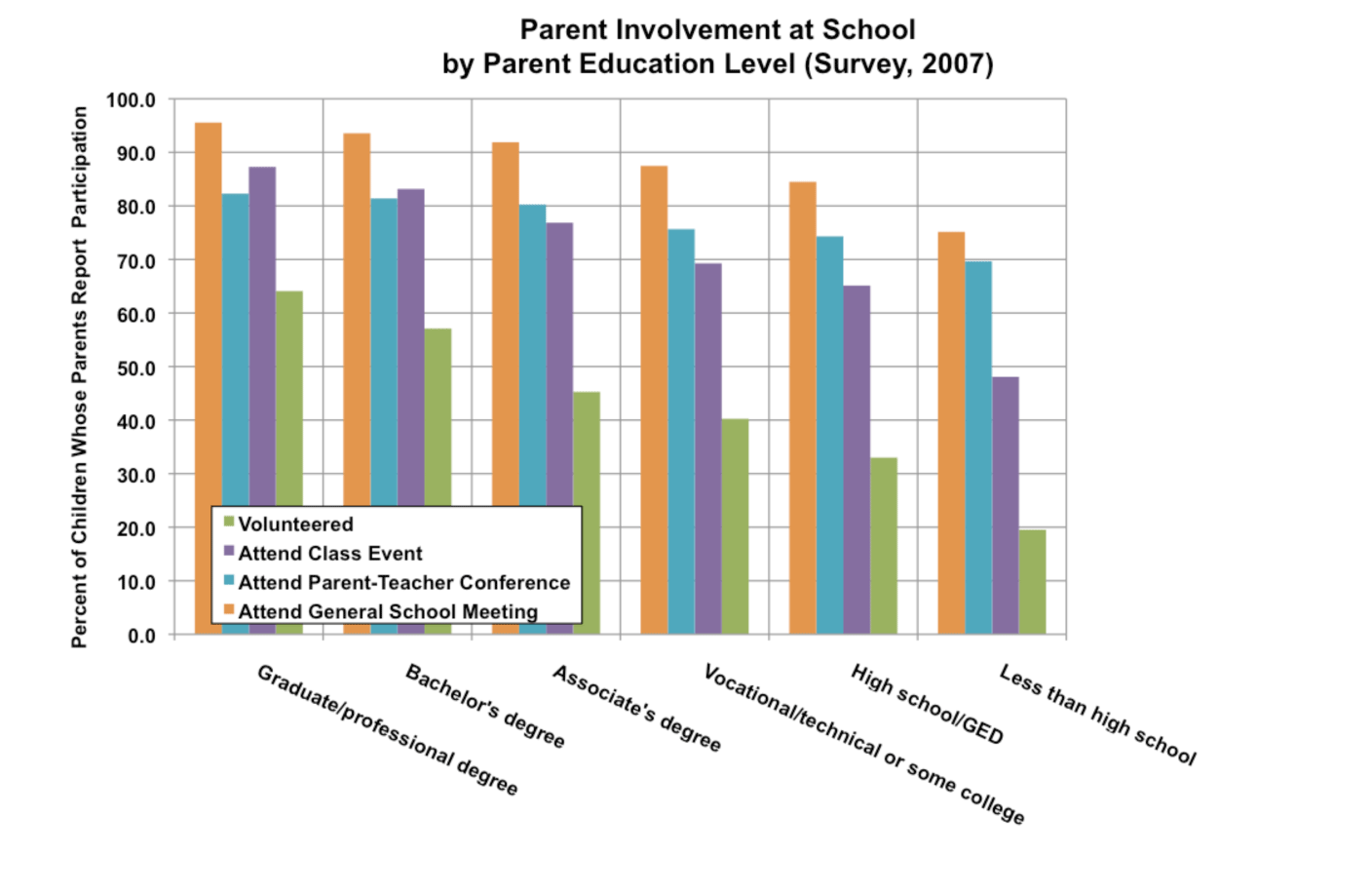What Part Does a Parent's Level of Education Play in Parental Involvement in Children’s Education?
Why is this question important? Parental involvement has been shown to be a strong indicator of student success at school. Understanding more about the characteristics of involved parents could help us get more parents involved and help more students succeed.
See further discussion below.

Source: Digest of Education Statistics (2008), National Center for Education Statistics, Institute for Education Sciences, U.S. Department of Education http://nces.ed.gov/programs/digest/d08/tables/dt08_023.asp
Results:
- There was a very strong relationship between more parent education and more parent involvement with school. Parents with graduate or professional degrees attended general school meetings at an approximately 20% higher rate than parents who didn’t graduate from high school. And, of those two groups, the parents with the most education volunteered in school at an amazing 43% higher rate than the parents with the least education.
- Throughout the parent education spectrum, there was a relatively consistent reduction in involvement from the highest level of involvement (attending a general school meeting) through the next two levels (attending a parent-teacher conference and attending a class event) to the lowest of involvement (volunteering at school).
Implications: It appears that parents with more years of education value being involved with their children’s education.
- Could this be a case of educated people valuing education, or people who value education getting more education themselves and investing time in education for their children?
- Could parents with more education have more time to spend being involved with their children’s education?
- If parental involvement is key to children’s educational success, how do educators get parents with less education more involved in their children’s education?
Authors: National Center for Education Statistics, Institute for Education Sciences
Publisher: National Center for Education Statistics, Institute for Education Sciences, U.S. Department of Education
Study Description: This analysis tabulates results published by the National Center for Education Statistics (NCES) in the Digest of Education Statistics (2008). The digest data was collected as part of the Parent and Family Involvement in Education Survey (2007) of the National Household Education Surveys Program.
Definitions:
Related Research:
Citation:
